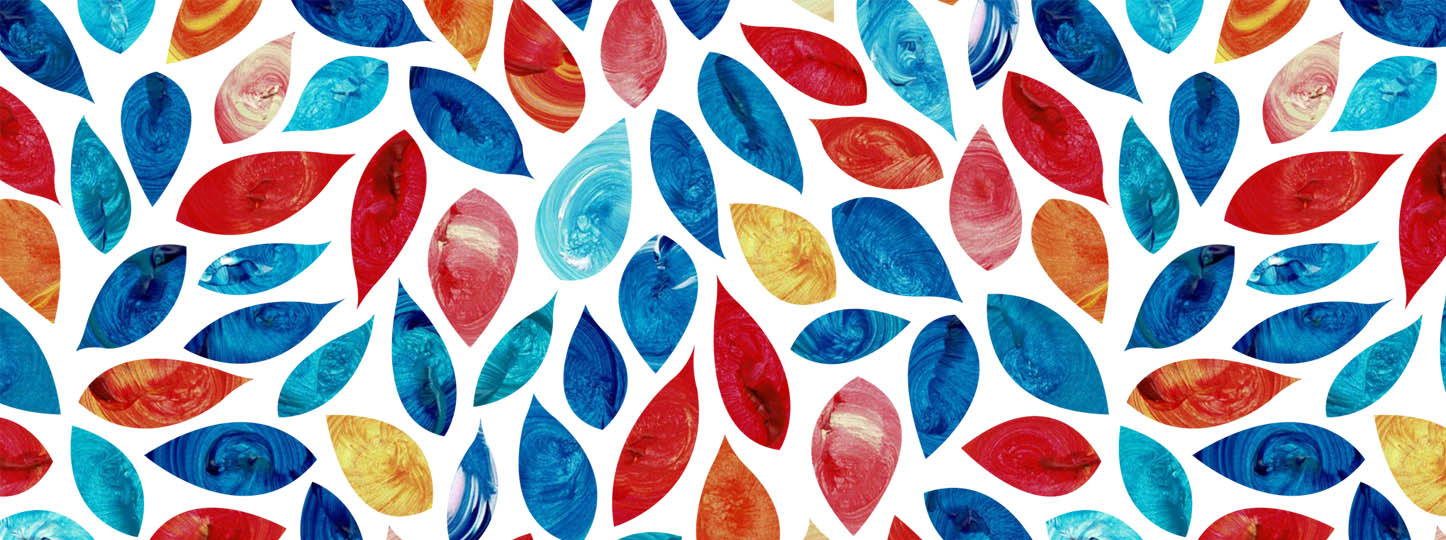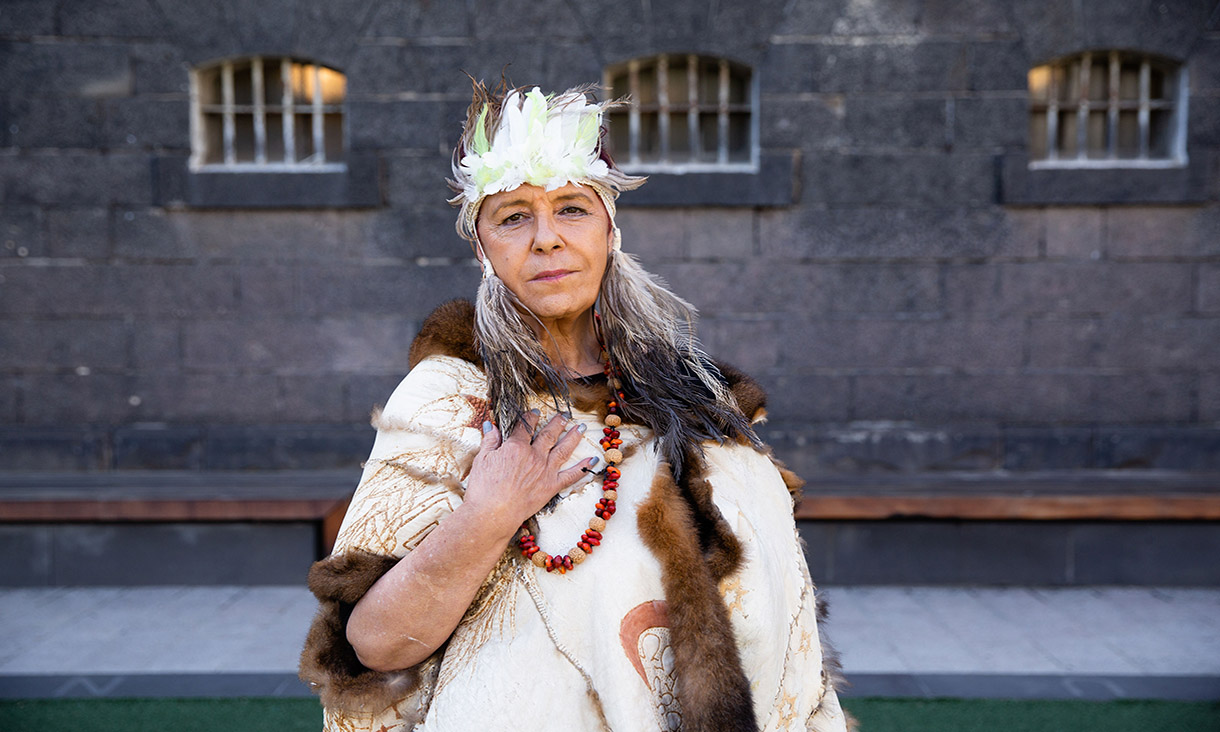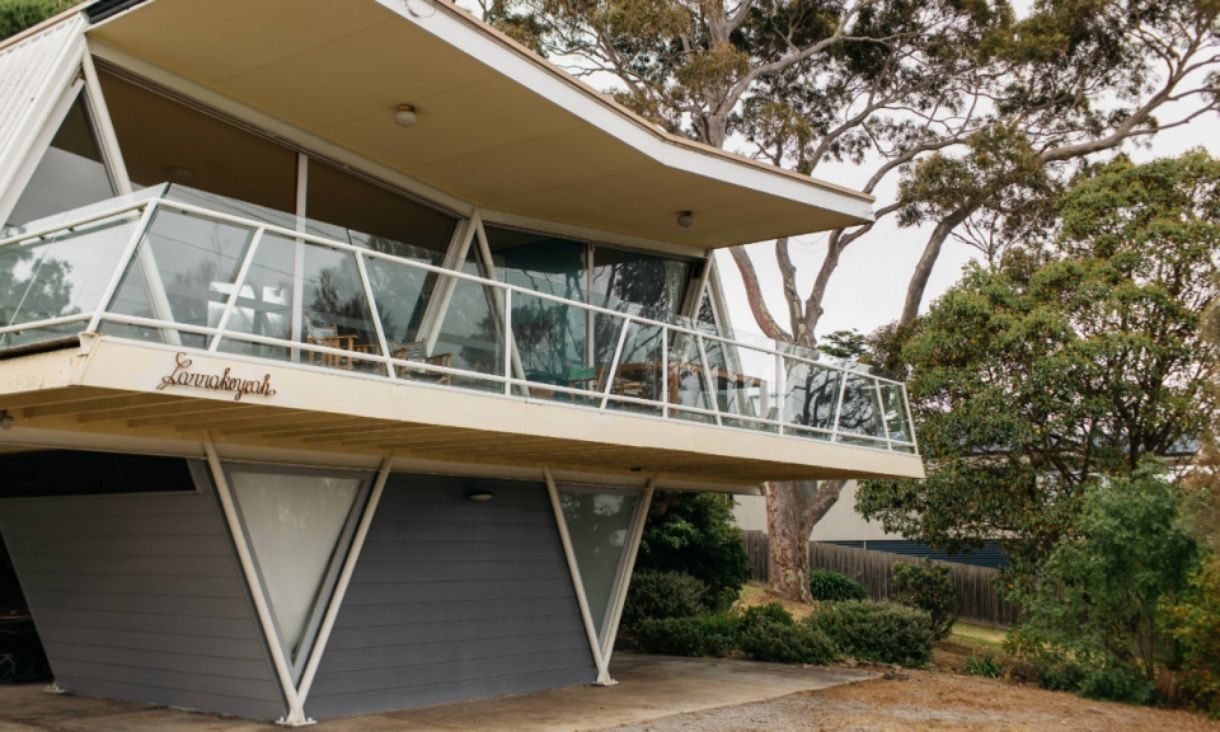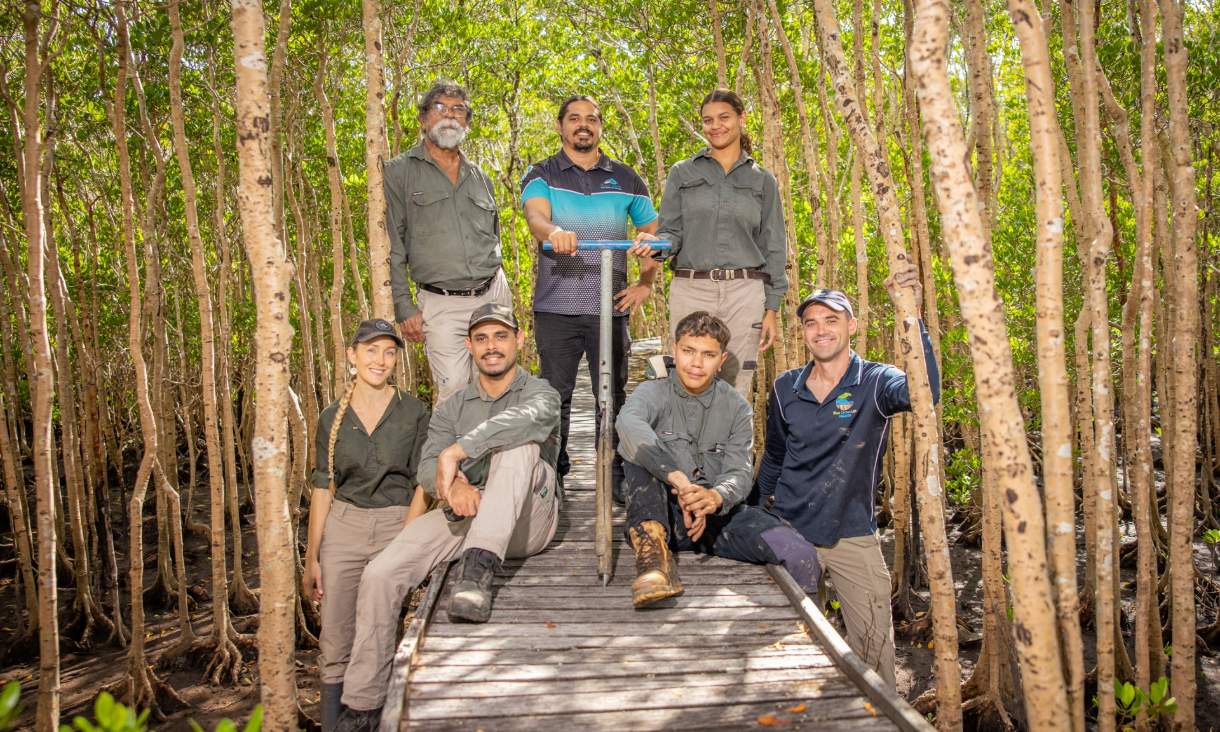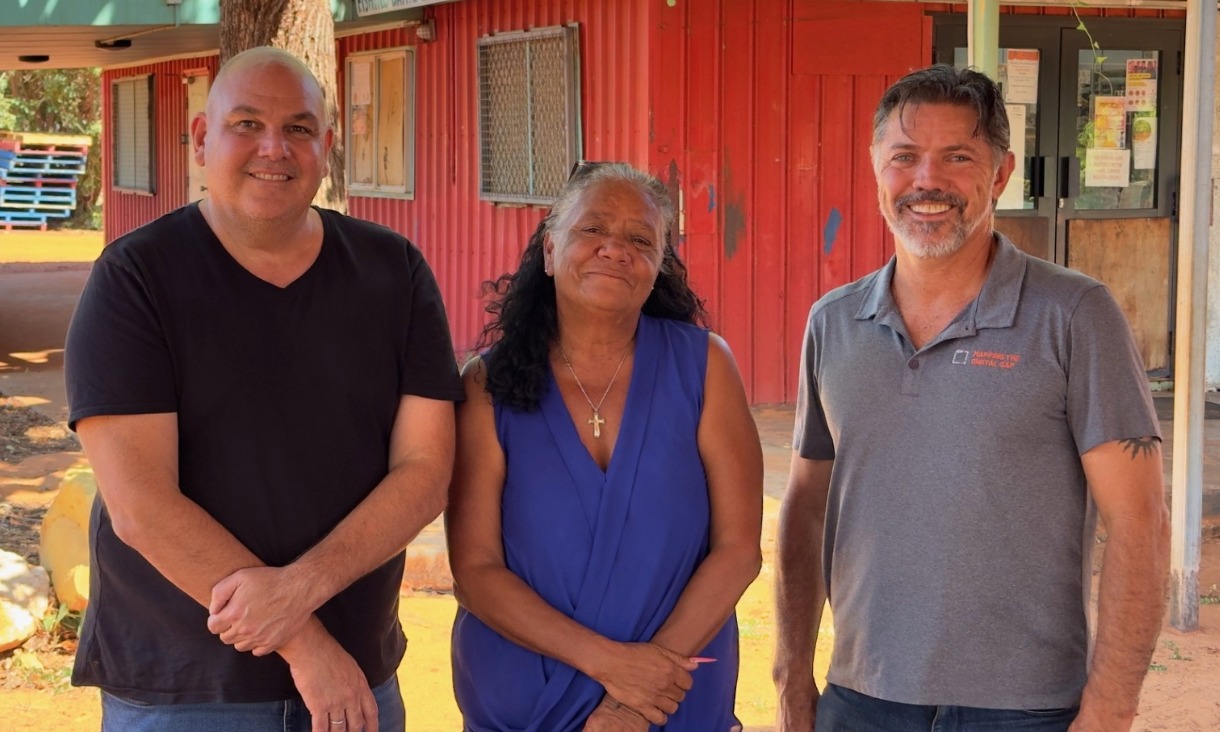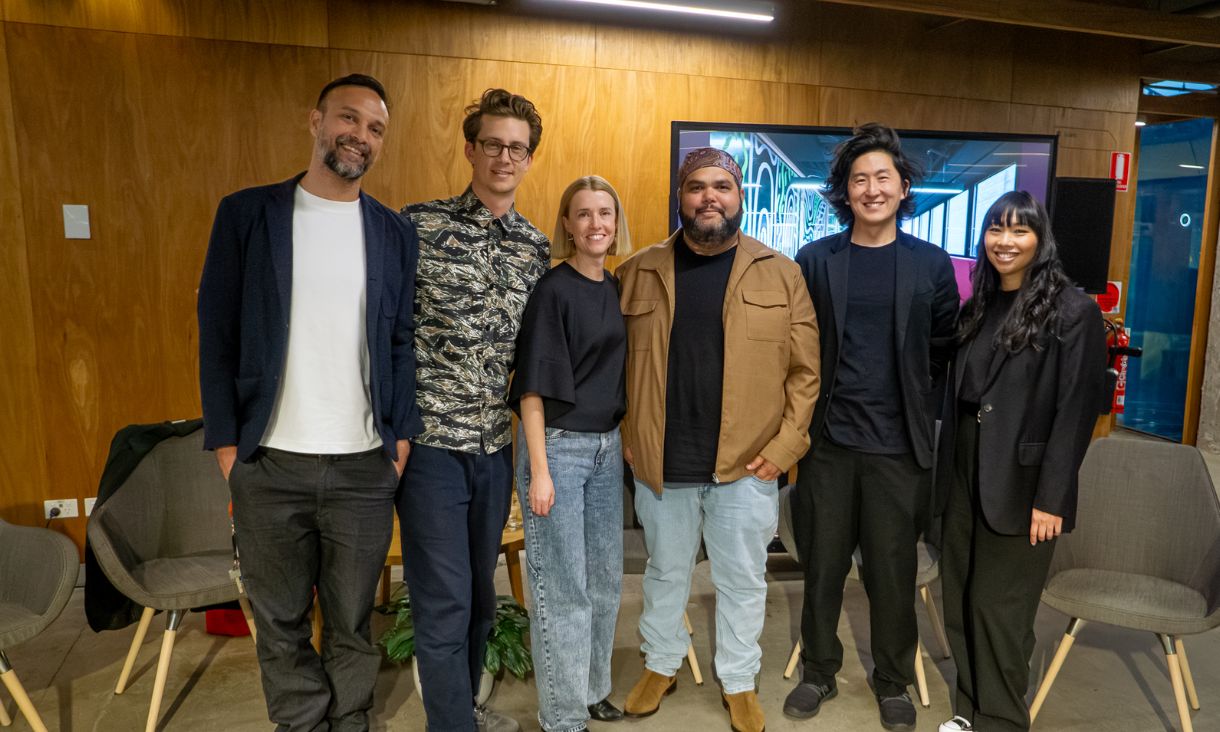You have been doing so much for many years to share your knowledge and culture with others. Have you seen changes in attitudes towards reconciliation over this time?
“I remember when reconciliation first came around, we thought ‘why are we reconciling?’ We as First Peoples need to be reconciling with ourselves. Twenty years down the track we’re doing truth telling and treaties and different government departments, universities and other institutions are now addressing these issues.
“We’re creating our own narratives our way now. But at the beginning of the reconciliation process, it did dredge up a lot of resentment and anger because we had to comply to the western way of thinking. And people were expecting us to give them the answers about why certain issues and policies were impacting Indigenous people. But they needed to look at their own system and how it was impacting on us.
“People needed to look at how their policies were reshaping our world, and separating us as ‘the other’ under a deficit model. It’s important to look at how we’ve had to adapt and change over all these years. Have others looked at how they need to adapt and change how they think? It’s taken us 54 years since the referendum to elevate ourselves up out of the quagmire of assimilating to a western structure.”
We all have a responsibility to work towards a reconciled and shared future. What do you see are some of the key elements for achieving this?
“There’s no one quick fix or panacea that contributes to the wellness of our shared society.
A lot of people assume they are instantly going to get the answer on why these policies had a major effect on Indigenous Peoples on their own Country. But it’s also a lot do with people reconciling what they don’t know.
“It’s definitely more than a word – people must take action and learn about our history. It involves looking at the past and trying to work out how we move forward in the future.
“What institutions can do is work with us and help us rebuild, not always take things away. We’re trying to build our culture and reclaim our language. Western systems are linear, whereas our system is a circular process. We’re trying to navigate through a system that needs an answer now. But the answers are not all to be found ‘now’. They are built, just like scaffolding your skills, building and rebuilding.
“When I’m giving a Welcome to Country, I wonder how much people are taking on board, because it’s not being shared in their structure or way of thinking. It’s melodic and it moves, and I try to get what it means when we’re building relationships. I try to bring people in as an inclusive part of a project. It’s about a quality of information and I feel honoured to be invited to share this Welcome.
People say they love my words, but do they think about what they mean? They have to sit for a long time to really embrace it, not just for the two minutes allocated.
“People choose to take up reconciliation. It’s about how they work for that process. It does take work and yes, it is more than just a word. Reciprocity is a good word too because it’s asking, ‘how do we work together?’.
“We’re working in a world that is upside down at the moment and we all have this shared future. We’re re-thinking and revaluating how we live and work. One positive thing that came out of COVID was highlighting the potential of our young people to look after their neighbours and family.
For example, a young Melbourne man saw his sister who was a doctor not eating properly because she was so busy. It began with him taking a lasagne to her, and then the project built to helping people on the streets and in the neighbourhood until he and his team ended up feeding 8000 people a week!
“And that’s how you bring change to the world, it starts with yourself! And then once you understand yourself and what you need for support, things can snowball in a positive way.
Somebody once told me ‘I tried to change the world, I tried to change my country, I tried to change my state, I tried to change my neighbourhood, I tried to change my street.’ But this young man did it the other way around, starting small and building and strengthening from there.”
What inspires you about working with the younger generations?
“We need to value and invest in our young people. They are the assets of the future, so how do we help them to develop and give them the right support?
We need to give them a safe environment, a safe place to grow their potential and maybe listen to them sometimes as they have great ideas.
“I work with kindergarten children in Balnarring and they embrace this new learning of Indigenous culture and stories with no fear. Young non-Indigenous children can speak the language, illustrate my stories, and we produce books together and sell them. The kinder teachers saw another way to embed First People’s knowledge and took the opportunity to work with us. They now belong to that story, and they can say the language and the story – they own it!
“I’m really proud of where they’ve come from, and how they’ve moved forward. It takes all of us to build a healthier, stronger society by taking action. It’s about the partnership and action – more than a word!”
Visitors to Melbourne’s CBD can now hear some of your stories in the new self-guided immersive theatre experience, 64 Ways of Being. Can you tell us more about your involvement in this project?
“RMIT mixed reality artist Dr Troy Innocent said to me, “You’ve got lots of stories and amazing ways of being, and we’d like you to be a part of this trail through Melbourne.
“I’m putting my whole self into this project – it’s my stories that I want to share, and I want others to feel that they belong to our stories too.
“It’s about taking the intangible and making it more tangible because I find myself in place then. I say to students, ‘I can’t find my ancestors in this land’. I’m one of the Traditional Custodians but where will you find me? In a book, or will my history be written by another western writer?
“I need western tools and I need them to help unpack my journey through that beautiful rich tapestry that we now know as Melbourne. We are walking my ancestors’ trail through this part of 64 ways of Being. They were major players and they had names. You might see a face on a building or a statue in the garden, or a memorial but there’s much more than that. Those things are not the whole of our stories, which are rich, belong to Country, and belong to the next generations.
“I’m trying to build presence and honouring to the people that came before me. It makes me move on feeling stronger. If we think about the 65,000 plus years of Indigenous history and how we’ve adapted, it’s amazing. We are strong, otherwise, we wouldn’t be here today. I’ll keep sharing my memories and stories while I’m still here.”
To hear more, the free 64 Ways of Being app can be downloaded from the Apple store and Google Play and requires headphones and a full mobile phone battery.
More information https://www.64waysofbeing.com/
Story: Kate Milkins
